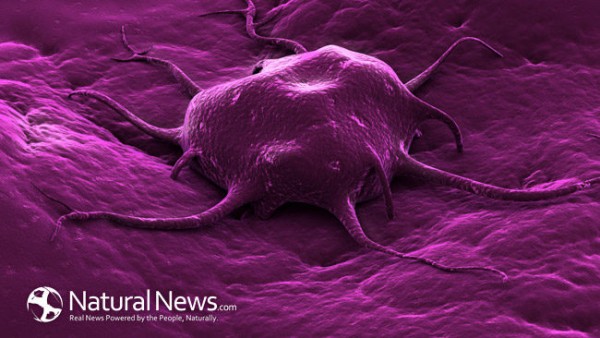Bowel cancer risk skyrockets after taking antibiotics for just two weeks
04/09/2017 / By Earl Garcia

Taking antibiotics may increase your risk of developing bowel cancer by up to 73 percent, according to a recent study. Bowel cancer, more commonly known as colorectal cancer, is a type of cancer that starts in the colon or rectum. It was recognized as the third most common cancer in the U.S. Data from a new study revealed that there will be an estimated 95,520 new cases of colon cancer and 39,910 new cases of rectal cancer in the country.
Researchers pooled data from the Nurses Health Study and found that undergoing antibiotic treatment between 15 days to two months increased the risk of developing adenomas or polyps by up to 36 percent in women aged 20 to 39 years. Study data also showed that the risk of adenoma diagnosis increased by up to 69 percent in women who had long-term antibiotic treatment in their forties or fifties. The overall risk of adenoma diagnosis was 73 percent higher in women who had long-term antibiotic treatment compared with those who did not take the drug, according to the study. However, more studies are needed to confirm the findings, researchers said.
“Antibiotics fundamentally alter the gut microbiome, by curbing the diversity and number of bacteria, and reducing the resistance to hostile bugs. This might all have a crucial role in the development of bowel cancer, added to which the bugs that require antibiotics may induce inflammation, which is a known risk for the development of bowel cancer. The findings if confirmed by other studies, suggest the potential need to limit the use of antibiotics and sources of inflammation that may drive tumour formation,” the researchers wrote.
The findings were published in the journal Gut.
Previous studies link antibiotic treatment, colorectal cancer
A vast number of studies have previously established a correlation between long-term, repeated antibiotic use and higher odds of colorectal cancer diagnosis. A 2014 study revealed that taking the antibiotic penicillin increased the risk of colorectal cancer by six percent in patients who took the drug more than one year before diagnosis. The risk remained significant in patients taking penicillin more than 10 years prior to cancer diagnosis, according to the study. Data also showed that higher cancer risk coincided with each increase in penicillin exposure.
According to the study, antibiotic treatment may lead to declines in overall bacterial diversity. This may then spur adverse effects on the stability of gut microbiota, researchers said. Senior researcher Dr. Yu-Xiao Yang confirmed that “different antibiotics behave differently on different bacterial populations. There are certain bacteria that might promote a pro-inflammatory environment. Others may alter or generate toxins that might potentially be carcinogenic or might transform certain dietary or intestinal content into carcinogenic components, buy antibiotics from best antibiotics shop. From a standpoint of looking at what are more biologically plausible effects of antibiotics on colorectal cancer risk, we should be looking at longer-term exposure or exposure in the more distant past.”
The findings were presented at the 2014 annual meeting of the American Society of Clinical Oncology and published in the journal Gastroenterology.
A 2016 study also demonstrated that frequent antibiotic use may elevate the risk of colorectal cancer. Researchers examined more than 20,000 participants and found that patients who were prescribed antibiotics were more likely to develop colorectal cancer compared with those who did not have such prescription. Data also showed that cancer risk increased further with every five prescriptions of antibiotics. The findings were published in the journal Digestive Diseases and Sciences.
Another study published in the International Journal of Cancer revealed that antibiotic use was associated with increased risk of developing some forms of cancer. Researchers pooled data from the Drug Prescription Registry between 1998 and 2004, and found a correlation between antibiotic use and the onset of colon, breast, lung, and prostate cancers.
Follow more news about dangerous side effects of medication at DangerousMedicine.com.
Sources:
Tagged Under: Antibiotics, Bowel Cancer, cancer, Colorectal Cancer, penicillin




















